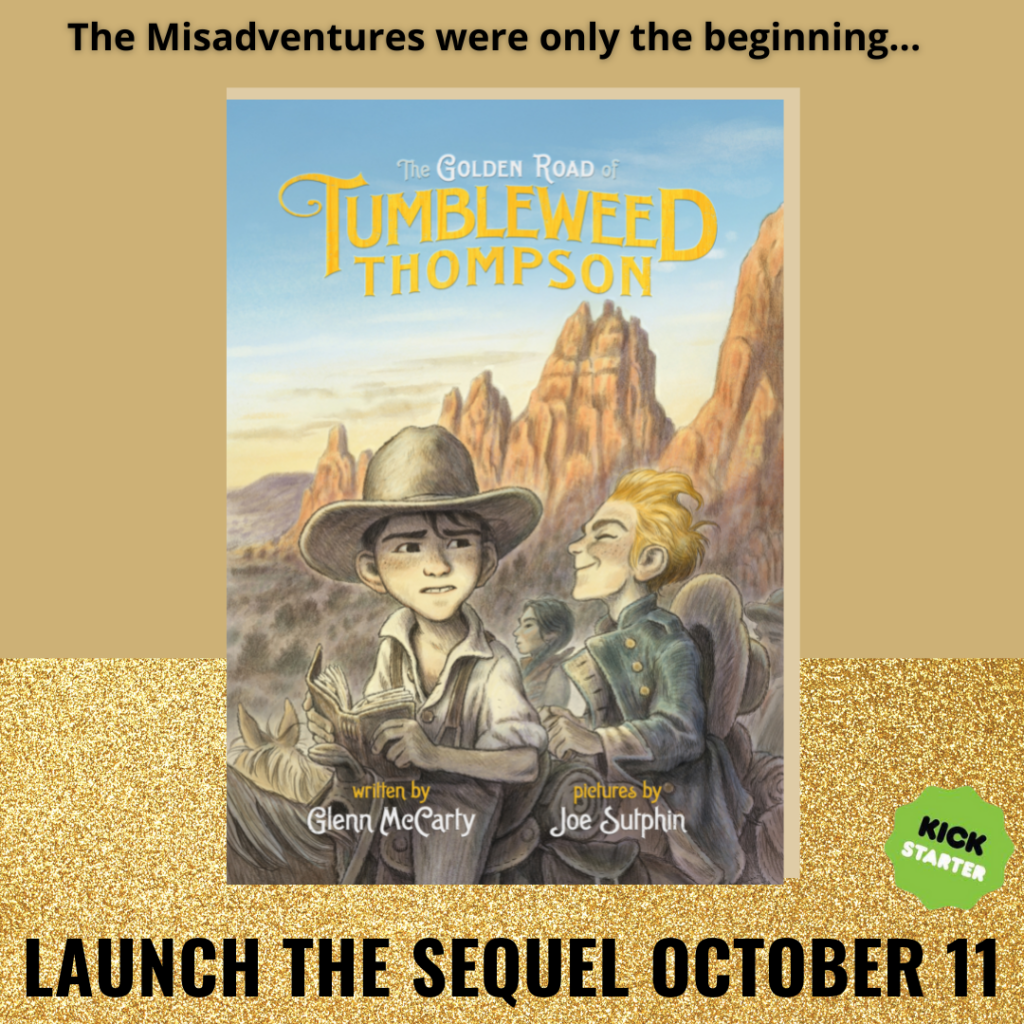NOTE: Glenn’s newest book, The Golden Road Of Tumbleweed Thompson, is crowdfunding publication, and you can pre-order your copy until Thu, November 10 202 at: https://www.kickstarter.com/projects/glennmccarty/the-golden-road-of-tumbleweed-thompson
During my senior year of high school — in the interest of full disclosure, that would be winter, 1996 — I came into possession of a cassette tape of the greatest hits album Songs, by singer/songwriter Rich Mullins. For those not familiar with Mullins’ music, he was something of a Christian music outsider, whose eccentric personality and commitment to hedging his bets on the status quo made him avoid mainstream popularity, but also has left a compelling legacy in his writings and his songs in the 25 years since his tragic death in a car crash.
I’m still not sure how I came by the tape, but I wore that thing out. I’d never heard anything like Rich Mullins, and his music tapped a deep root of longing inside me. One moment in particular stands out to me: somewhere near the start of Side B of the tape, the song “Calling Out Your Name” opens with Rich’s distinctive, haunting hammered dulcimer, almost like a movie soundtrack, leading into the words of the first verse:
Well the moon moved past Nebraska
And spilled laughter on them cold Dakota Hills
And angels danced on Jacob’s stairs
Yeah, they danced on Jacob’s stairs
A flatlander until age 8, and a Floridian the rest of my youth, I had never been to Nebraska, or seen “them cold Dakota hills,” or even knew which “Jacob’s stairs” Rich was referring to. (Genesis, maybe?) But as the song moved on, I could feel something inside me awaken as he sang about a part of America where “you can look sometimes forever ’til you see/What time may never know.” I heard his meaning, loud and clear, despite the distance between my home in Florida and the wide midwestern prairies My “looking forever” had taken place oceanside, toes buried in the sand, wondering what lay beyond the bright blue horizon.
I finally got the chance to travel America, in a form, four years later, during a brief stint criss-crossing the country for a summer job in college. It was my first taste of the indescribably wide sky that can only be found somewhere between the Mississippi and the Pacific. There’s big, and then there’s Montana big.
And so, two years ago, when it came time to dream up the next adventure for Eugene Appleton and Tumbleweed Thompson, twin protagonists of my middle grade frontier adventure novel The Misadventured Summer of Tumbleweed Thompson, it didn’t take long before I found myself imagining the two boys, now age 13, ascending a rugged mesa to stand with their faces to the sunrise, drinking in the grandeur and glory of the wide Colorado sky.
The prairies, it seemed, were still calling out my name after all those years since I had first heard Rich sing about them.
I’ve been asked many times to explain how a guy who has called Western New York home for nearly 20 years chooses the American frontier as the setting for his books. At first, I’d stumble my way through the answer, using words like “romanticism” and discussing the symbolism of the American West. But as I’ve thought more about the world in which Eugene and Tumbleweed dwell, I’ve discovered the fingerprints of Rich Mullins are all over my imagination. In songs like “Calling out Your Name,” “Such a Thing As Glory,” “The Color Green,” and others, Rich Mullins framed the world as the wild canvas of a God whose imagination is boundless, abundant, and personal. It’s a form of incarnation, he would constantly remind us, where the creator can reveal himself in the beauty of his created world. Like Abram and Jacob, we, too, were meant to stand under the stars and commune with our creator, to hear his voice and be reminded of his unbreakable covenant with his people.
While I’ve never been to Pikes Peak, the Garden of the Gods, or the Sangre de Cristo Mountains — all settings in The Golden Road of Tumbleweed Thompson, the aforementioned sequel — I have stood on a rocky spit of land on the Maine coastline, my face to the Atlantic, and felt the cold spray of the ocean mist blow across my face. All it takes is a few moments in the grip of the beauty of the natural world to be reminded that “the Lord is in His temple/And there is still a faith that can make the mountains move/And a love that can make the heavens ring.” (Again, Rich Mullins).
As Frederick Buechner says in Whistling in the Dark:
Beauty is to the spirit what food is to the flesh. A glimpse of it in a young face, say, or an echo of it in a song fills an emptiness in you that nothing else under the sun can. Unlike food, however, it is something you never get your fill of. It leaves you always aching with longing not so much for more of the same as for whatever it is, deep within and far beyond both it and yourself, that makes it beautiful.
It was that longing I felt in Maine, and that I’m praying you’ve had the grace to experience in your own corner of the world. It stills us and quiets us, pointing us to the wideness in God’s mercy, and in his relentless, unbreakable love for his children through his gifts of beauty and abundance.
For a boy like Eugene Appleton, living in the foothills of the Rocky Mountains from age 8 onward, it seemed that the year after his “misadventured summer” in which the world became so much larger thanks to his new friendship with Tumbleweed Thompson and their nail-biting encounters with the Clean Shave Gang, was the perfect time for him to break out of the confines of his life in Rattlesnake Junction, Colorado and see the West.
Telling a story with the landscape as its backdrop seemed perfectly in keeping with what I believe middle grade fiction should do. There’s something about telling stories for this age group which allows for the unique opportunity to nudge young people to look up and elevate their vision with the possibility of new horizons, expose them to new perspectives, and guide them to looking outward at the world and inward at themselves at the same time. In the adventures of Tumbleweed and Eugene, against the backdrop of the wild American West, I hope young readers can be reminded, as Rich Mullins says,
How the Lord takes by its corners this old world
And shakes us forward and shakes us free
To run wild with the hope
To run wild with the hope
The hope that this thirst will not last long
That it will soon drown in a song not sung in vain.
I know the beauty of the Lord’s creation has done this for me again and again, and it’s my hope it will again for you. And maybe, in some small way, the world of Tumbleweed Thompson and Eugene Appleton will remind you of the beauteous world around you, which is still calling out your name.

- The Winter King: A Review - January 10, 2024
- Taking it Slow - November 13, 2023
- Calling Out Your Name: Rich Mullins, the Rocky Mountains, and Tumbleweed - October 17, 2022

Leave a Reply